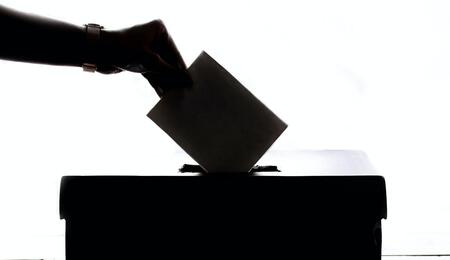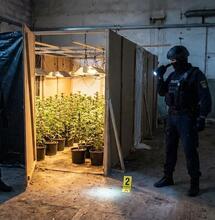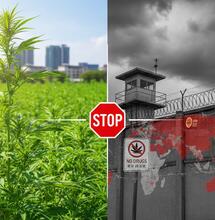New Zealand Referendum to Legalize Marijuana Falls Short

Proponents believe that PM Jacinda Ardern has missed an opportunity to influence the outcome of the New Zealand marijuana referendum.
New Zealand will officially join the handful of countries where the act of euthanasia is legal after its residents unanimously approved it in a referendum in October. However, Kiwis decided to vote against the second question on the ballot during the general election and disapprove of the legalization of recreational marijuana for adults over 21.
In a neck-to-neck race, 48.4% of New Zealanders gave thumbs up for legalizing recreational weed, but the naysayers of the measure were more in number - 50.7%, and won with just 67,662 votes difference. While the end results paint a clear picture of a country divided on drug policy, the lead-up to the October election polls showed that New Zealanders are split on the legalization of cannabis questions, supporting legalizing marijuana between 30-50%.
Cannabis activists and proponents of the measure are blaming the newly re-elected Prime Minister Jacinda Ardern, who had refused to take a stand on legalization before the election and revealed only later that she had voted in support of it, the New York Times reported.
Marijuana advocates and proponents of legalizing cannabis argued the referendum result could have been different if the prime minister had taken the position and declared her support.
Richard Shaw, a politics professor at Massey University, told the New York Times the seven-point gap would most likely have "been a whole lot tighter had the P.M. took the position in public that we now know she took on the ballot herself." Especially online, he said, "there's a certain measure of disaffection, frustration and no small amount of anger that she's now indicated she has this position and hasn't clarified why she didn't take this position before the election."
In the non-binding referendum, the Kiwis were not only asked to vote on the general principle of legalization, but they were also to decide how it would be regulated, used, and sold. Even though the marijuana referendum was nonbinding, the government would drop efforts to legalize or decriminalize the drug, according to a statement by Justice Minister Andrew Little.
If the results were in favor of the legalization of recreational cannabis, the regulations would have imposed more rigorous restrictions than those around tobacco and alcohol sales.
The country has been traditionally conservative towards the legalization of cannabis. Controlled under the Misuse of Drugs Act 1975, cannabis is, and possession of any amount has been illegal in New Zealand since 1927. Kiwis caught with possession of cannabis can be sentenced to 3 months jail time or a $500 fine. Cultivation of marijuana is punishable with seven years imprisonment while dealing with cannabis carries a maximum sentence of eight years of jail time.
Marijuana is the most commonly used illicit drug in the country, and according to the recent New Zealand Health Survey, 590,000 or 15% of adults used cannabis in the past year. Moreover, according to data by the New Zealand Drug Foundation, 80% of Kiwis have tried cannabis by age 21; however, only 10% become habitual users.
New Zealanders smoke around 74 tons of weed a year and over 330,000 hours are spent by the Police on weed enforcement, which costs $200 million of taxpayers' money.
The indigenous people Māori account for 16% of the country's population. According to many reports and studies, they are facing three times as many arrests for use and possession of marijuana than non-Māori. According to the head of the department of Māori health at the University of Auckland, Prof Papaarangi Reid, the legislation of cannabis would help control the price, distribution, and potency of the drug and make it less accessible to underage people.
While New Zealand will have to wait on a future opportunity to regulate the recreational use of marijuana, the good news this month is that in the U.S., Montana, New Jersey, South Dakota, and Arizona approved the legalization of recreational use of marijuana statewide; in the same election, Mississippi and South Dakota voters also gave thumb ups on medical cannabis legalization.







